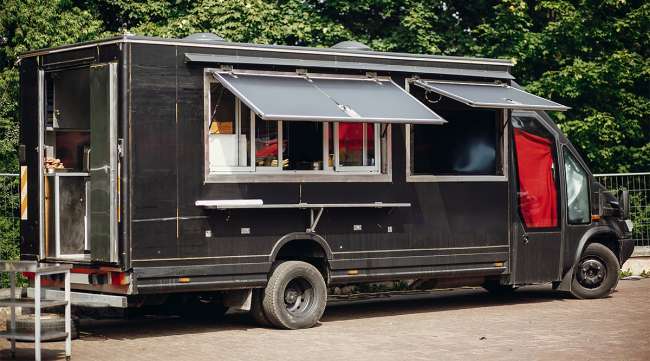Senior Reporter
FHWA Permits Food Trucks at Rest Areas During Coronavirus Crisis

[Ensure you have all the info you need in these unprecedented times. Subscribe now.]
The Federal Highway Administration has issued a notice to state departments of transportation that the agency will allow food trucks at federally funded interstate highway rest areas to support commercial truck drivers during the coronavirus emergency.
"The nation is experiencing extraordinary and unprecedented circumstances due to the current COVID-19 national public health emergency, in which states have been forced to close restaurants and other available food service accommodations, including in interstate highway rest areas,” said the FHWA’s Notice of Enforcement Discretion.
“America’s commercial truck drivers are working day and night during this pandemic to ensure critical relief supplies are being delivered to our communities,” FHWA Administrator Nicole Nason said April 3. “It is critical to make sure truck drivers continue to have access to food services while they’re on the job serving our nation during these challenging times.”
Nason lauded state transportation partners for bringing the idea to the federal agency, and for “thinking outside the box.”
By statute, commercial activity in the federally funded interstate right-of-way is prohibited, with limited exceptions. However, the FHWA administrator has the discretion to take any action deemed appropriate to bring a state into compliance with federal requirements.
“Given the extreme and unprecedented nature of the COVID-19 pandemic, Administrator Nason is choosing not to take remedial measures against states that allow food trucks to provide food in rest areas off the federally funded interstate right-of-way for the duration of the national emergency declared by the president in response to the COVID-19 public health crisis,” the notice said.
The agency recognizes that in such circumstances, vending machines may not be adequate to provide the necessary sustenance, and in many cases the vending machines may not be regularly stocked at the present time, FHWA said.
The administrator’s notice is effective for the duration of the national emergency, the agency said.
Since these actions are temporary, states must come back into compliance with federal law once the presidentially declared emergency ends. Any states that do not come back into compliance after the emergency is over may be subject to remedial measures designed to achieve compliance.
Matt Geller, president of the National Food Truck Association, said his group is excited to be able to get food offerings to truckers.
“Look, this is a national emergency” Geller told Transport Topics. “This isn’t fair. Truckers are the backbone of America right now. The fact that they don’t have a place to eat is terrible.”
But getting food trucks to the right spots is a huge logistical challenge, he said.
“We need to know the routes that are visited,” Geller added. “If you send a food truck out and they don’t do well, it costs them a lot of money — and right now they can’t afford that.”
Truckers around America need your help. There are fewer and fewer places available for them to eat. email us at info@nationalfoodtrucks.org if you'd be interested in serving at truck stops. Posted by National Food Truck Association on Saturday, March 21, 2020
His association is trying to get four spots up and running with a consistent schedule by the weekend of April 11, Geller said.
For every busy rest stop he locates, he has to make sure there is no food nearby. If it’s a public rest stop, his association has to reach out to the state. If it’s a private stop with gas, but no food, he has to reach out to the private property owner.
His association already gets about 100 Facebook and email inquiries daily from truckers anxious to know where and when the trucks will be at the rest stops, Geller said.
“Natso members are all struggling to keep their food operations afloat during this pandemic, and they all have understandable concerns with the idea of food trucks being allowed to siphon off their customers,” Tiffany Wlazlowski, vice president of public affairs for the trade group that represents travel plaza and truck stop owners and operators told TT. “We are in communication with DOT on this issue.”
However, Wlazlowski added, “Our No. 1 concern remains ensuring that America’s truck drivers have places where they can eat and rest, and we believe that the best way to ensure that is to help truck stops navigate, survive and stay open during this pandemic.”
Want more news? Listen to today's daily briefing:




